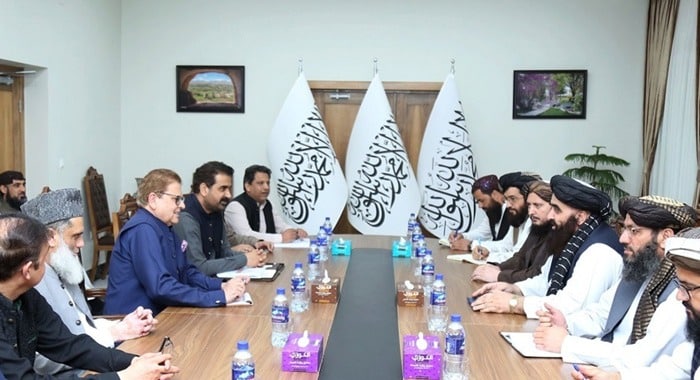Pakistan has resumed high-level diplomatic engagement with the Taliban, signalling a significant shift in regional dynamics and renewed efforts to foster cooperation and stability in Afghanistan.
On April 17, 2025, Mohammad Sadiq, Pakistan’s Special Representative for Afghanistan, confirmed that interactions between Islamabad and the Taliban leadership have resumed after a prolonged hiatus. Speaking after attending the Afghanistan-Pakistan Joint Committee meeting in Kabul, he described the development as a positive step toward strengthening bilateral ties and regional collaboration.
Sadiq stated that Pakistan, in coordination with the Taliban, is actively working on a framework for tripartite and multilateral relations involving key regional stakeholders. The initiative aims to include China, Russia, Kazakhstan, Uzbekistan, and Iran in a collective effort to address Afghanistan’s political, security, and economic challenges.
“Consultations have already taken place with China’s Special Representative as part of this initiative,” he said, emphasising the importance of regional consensus and cooperation in stabilising Afghanistan.
The announcement came the same day the Russian Supreme Court temporarily removed the Taliban from its list of terrorist organisations, a move that reflects Moscow’s evolving posture towards Kabul. While Russia has clarified it will continue to abide by United Nations sanctions on Taliban officials, the legal shift paves the way for more formal diplomatic interaction.
Pakistan’s renewed engagement with the Taliban, coupled with regional actors exploring deeper diplomatic channels, suggests a pragmatic shift toward a multilateral approach to resolving the Afghan crisis. However, the success of this initiative will depend on sustained coordination among all involved parties and a shared commitment to regional peace.





